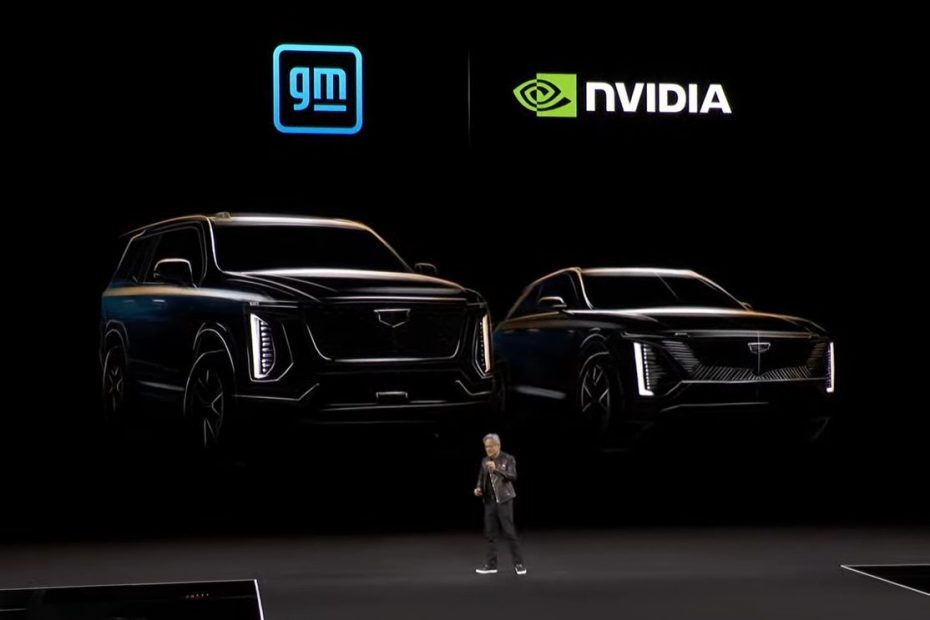Nvidia has announced a new partnership with General Motors focused on self-driving technology. Collaboration will span multiple areas, from vehicle systems to manufacturing processes, as the automaker looks to accelerate its autonomous driving capabilities.
“Today, I’m super excited to announce that GM has selected Nvidia to partner with to build their future self-driving car fleet,” said Nvidia CEO Jensen Huang. “We’re looking forward to building with GM on AI for manufacturing so they can revolutionize the way they manufacture, AI for enterprise so they can revolutionize the way they work, design and simulate cars, and also AI for in the car.”
The partnership involves GM utilizing several AI services from the tech giant across its vehicles, advanced driver assistance systems (ADAS), and factory operations. However, while Nvidia will provide the chips for data centers and vehicles, the software development will remain in the hands of GM engineers.
Nvidia Cosmos system designed to tackle full self-driving using synthetic data—potentially addressing one of the biggest challenges in autonomous vehicle development.
“We build detailed 4D driving environments by fusing maps and images and generate a digital twin of the real world,” explained Jensen.
The Cosmos system leverages actual vehicles to generate synthetic real-world driving scenarios, creating drivable 3D environments for training self-driving systems. These scenario variations can be generated from replayed drive logs or through AI traffic generators.
At the heart of Cosmos is a neural reconstruction engine that transforms autonomous vehicle sensor logs into high-fidelity 4D simulation environments. This approach allows previous drives to be replayed in 3D while generating countless variations to expand training data exponentially.
According to Nvidia, this AI data factory effectively scales hundreds of actual drives into billions of virtual miles—potentially accelerating development timelines while improving safety and reliability.
Industry analysts remain skeptical about what this partnership means for GM’s competitive position. As one observer noted, “Everyone uses Nvidia, doesn’t give you any special advantage.” The success of this Nvidia partnership with GM will ultimately depend on how effectively the automaker implements and differentiates its software solutions.
Related Post
Nvidia Thor Chip Delay Pushes Chinese EV Makers Toward Self-Developed AI Chips
GM Goes All-In on End-to-End Self-Driving: The Industry’s Transformative Moment
GM Exits Cruise Robotaxi Race: $10B Loss Forces Strategic Shift in Autonomous Vehicle Development
